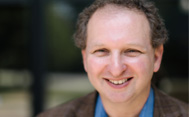
Alexander Volokh: News Releases and In the News


Volokh: Forest Park’s noise provisions are free speech violation

Volokh: Jimmy Kimmel suspension is ‘cancel culture run wild’

Volokh answers questions about free speech in the workplace
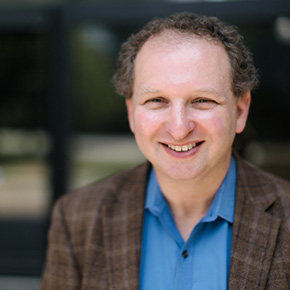
US Supreme Court Justices look to Volokh on non-delegation
Two SCOTUS justices cited Volokh in a decision, and Justice Gorsuch referenced an amicus brief Volokh wrote.

Volokh: Trump’s fake emergencies are the real crisis
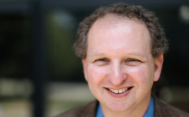
Volokh on whether President Trump can seek a third term

Volokh on how Court may rule in Wisconsin religious rights case

Volokh: How US Supreme Court may rule on “nondelegation doctrine”

Volokh: SCOTUS agency rulings keep government accountable

Volokh: SCOTUS considered immunity for the ages, not just Trump

Volokh on GA bill to ban use of artistic expression as evidence at trial

Volokh, former clerk, remembers Sandra Day O’Connor

Volokh on impact of Colorado's ruling on Trump candidacy

Volokh reflects on O'Connor's legacy, impact at SCOTUS

Volokh on use of Young Thug's lyrics as evidence

Volokh: GA abortion ban opponents unlikely to succeed on appeal

Volokh: Why GA Supreme Court upheld abortion 'heartbeat' law

Volokh: Taxes, adult entertainment, and the First Amendment
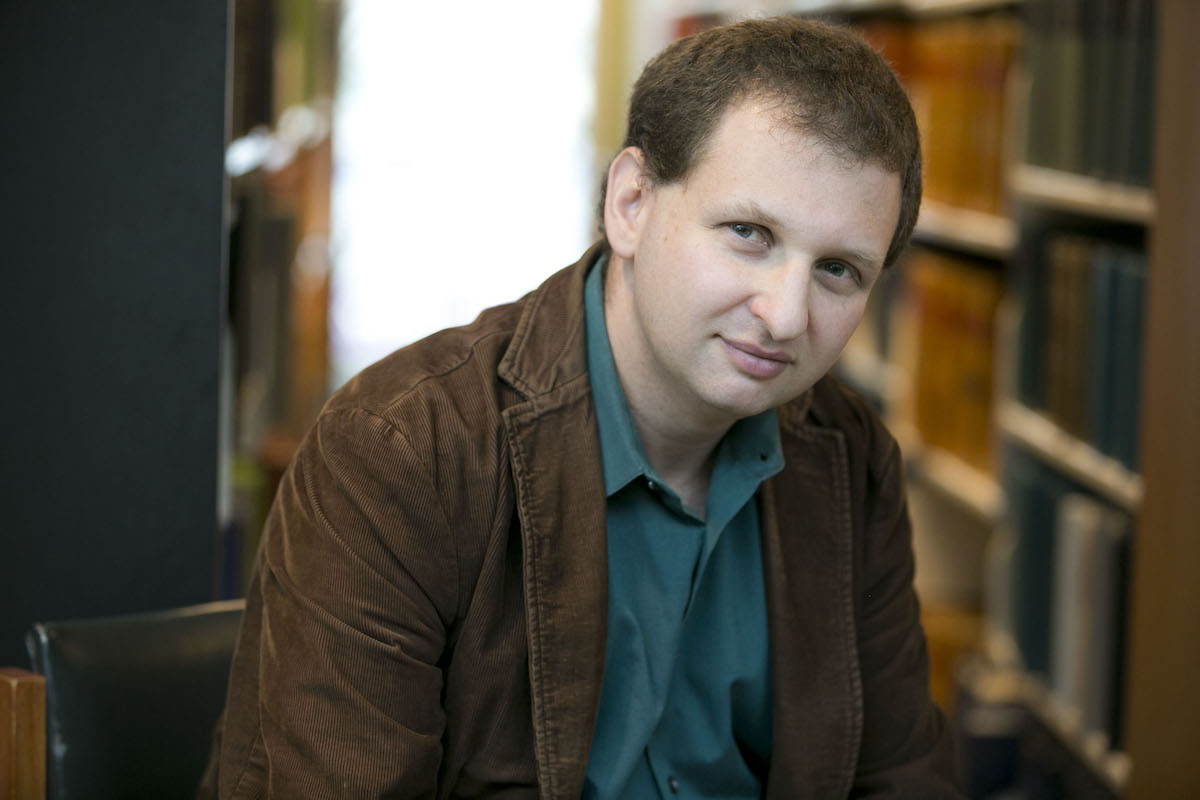
303 Creative: Free speech reigns, even in the marketplace
The Supreme Court has taken an enthusiastic role in enforcing free speech guarantees. In 303 Creative LLC v. Elenis, the Court made clear that customized website design is “pure speech,” and that free speech protections trump antidiscrimination law, even when the speaker is acting in the marketplace.

Volokh: SCOTUS finds Biden overstepped authority on student loan forgiveness

Volokh: SCOTUS LGBTQ ruling aligns with free speech fundamentals

Volokh: SCOTUS rules you can't be forced to create messages you disagree with

Volokh: A (very) slight win over the administrative state

Volokh: SCOTUS stay on Mifeprostone isn’t final word on abortion

Volokh: In Georgia, the unborn are now persons

Volokh: With 11th circuit decision, Georgia heartbeat law takes effect

Volokh: Biden’s abortion order reflects existing HIPPA privacy rules

Volokh on Roe v. Wade, state trigger laws

Volokh: Why calls to ban books are increasing

Volokh to Georgia's high court: Adult club tax violates First Amendment

Volokh: DC statehood lawsuit concerns dilution of states' voting power
Georgia Attorney General Chris Carr and 22 of his national counterparts have started a coalition to prevent DC from becoming a state. They say they're defending the Constitution. Emory Law Professor Alexander Volokh said the issue is how it could dilute voting power of existing states. "Whenever a new state is admitted that dilutes voting power of every existing state, so that means if you are concerned about the power of your state to shap'e the destiny of America, you can welcome new states," he said. "But on the other hand you can say, No, if we're going to dilute voting power it should be valid,'" Volokh said.

Volokh: Allow electric car industry to sell directly to consumers
Associate Professor Alexander Volokh testified before a Georgia House of Representatives subcommittee in a battle between traditional car manufacturers and dealerships, and the electric car industry, which tends to go directly to the consumer for sales. Volokh told the subcommittee that businesses should be allowed to find the best ways to sell their products. "It shouldn't be up to us to tell manufacturers the best way to reach their customers," he said.
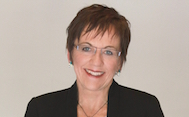
First Amendment no defense against Trump’s impeachment, professors say
Three Emory Law faculty--Mary L. Dudziak, Michael J. Perry and Alexander Volokh--joined more than 150 law professors who signed a letter published by the New York Times, which says the First Amendment is no shield for former President Donald Trump at his impeachment trial.

Volokh: Don't end private prisons, improve incarceration system
The Biden Administration has issued an executive order to not renew federal contracts with privately operated criminal detention facilities. In a post for Reason, Professor Alexander Volokh disagrees. "Well-intentioned prison reformers too often blame private prisons for problems that plague incarceration generally," he writes. Instead of ending private prisons, one could make contracts performance-based, to incentivize measurable factors like post-prison employment and recidivism.

Volokh: Enforcing antitrust laws against tech companies can be difficult
Congress is taking on the tech industry, in response to allegations that once scrappy startups have evolved into monopolies that disregard users' privacy in the pursuit of profit. However, getting courts to enforce antitrust laws can be difficult, some professors say. "If you go into court and you say, 'We ought to break up this company because it has a 100% market share,' but you can't show that they did anything reprehensible to gain that market share, then you're going to lose," Professor Alexander Volokh tells Salon.

Volokh: Why the Supreme Court passed on California pension case
This week the U.S. Supreme Court sent a pension case back to a California appeals court, which is likely to make fiscal hawks unhappy, the Marin Independent Journal reports. It is based on the so-called “California rule” which prevents state agencies from cutting retirement benefits without providing employees with comparable pension compensation. Earlier rulings in two other cases strongly affirmed the California rule, both with unanimous votes. "I think for sure the Supreme Court is not interested in rethinking the California rule in any global way." Professor Alexander Volokh said.

Volokh discusses Trump's campus free speech executive order
"President Donald Trump is expected to order U.S. colleges to protect free speech on their campuses or risk losing federal funding," California radio station KPCC 89.3 reports. Associate Professor Alexander Volokh was a guest on the show to discuss the issue. He is chair of the Emory University's Committee for Open Expression, an on-campus free speech organization.

Volokh: Trump can't change birthright citizenship
President Donald Trump says he wants to use an executive order to end the constitutional right to American citizenship for children born in the U.S. to undocumented parents, 11Alive reports. Emory Law Professor Alexander Volokh says that idea is meritless. "The idea that Trump can end birthright citizenship by executive order is probably one of the most illegal ideas that Trump has expressed," he said. An executive order doesn¿t override the Constitution, he said, and Congress would have to vote to change the constitutional provision concerning citizenship.

Volokh recalls Justice O'Connor 'steering a middle course'
Emory Law professor Alexander Volokh was quoted on former U.S. Supreme Court Justice Sandra Day O'Connor's recent retreat from public life following a diagnosis of early-stage dementia. Volokh, who teaches constitutional law, clerked for her for her last six months on the court, ending in early 2006. "Many of the important opinions I teach are O'Connor opinions," he said.

Volokh: Emory's commitment to open expression matters
Emory is one of 39 schools that earned a 'green light" rating for free speech on campus from the Foundation for Individual Rights in Education (FIRE) after revising sections of its conduct code and policies governing campus bias incidents. Emory Law Associate Professor Alexander Volokh is chair of Emory's Committee for Open Expression, which worked to update policy to reflect Emory's values. "The credit really belongs to Emory's administrators, from President Claire Sterk on down, who strongly support open expression on campus--as well as to the University Senate that adopted the Open Expression Policy five years ago," Volokh said.
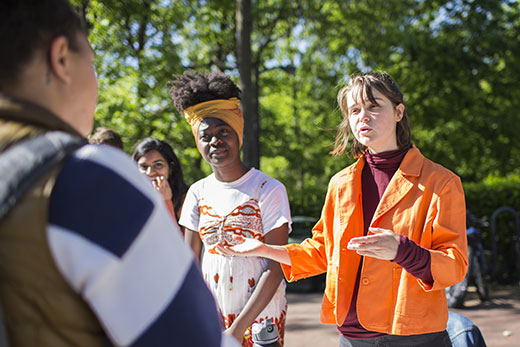
Emory's approach to open expression gains attention
Alexander "Sasha" Volokh, chair of Emory's Committee for Open Expression (CFOE) worked with various Emory administrators on changing and updating the Respect for Open Expression Policy.

Volokh in Daily Report: Nude dancing a form of free speech
The Georgia Association of Club Executives have sued state officials over a new tax on strip clubs, asking it be declared unconstitutional. Those lawyers engaged Emory Law Associate Professor Alexander Volokh as a consultant. "I do think there is a good First Amendment argument against the law," he said, adding the U.S. Supreme Court has "recognized in many cases that nude dancing is a form of speech that gets some protection. The question is, just how much protection does it get?"

Volokh: Emory earns 'green light' for commitment to free speech
Emory Law Professor Associate Professor Alexander Volokh writes about Emory University's "green light" status for its commitment to free speech and open expression on campus in his latest Washington Post op-ed. Emory University received a "green-light" free-speech rating from The Foundation for Individual Rights in Education (FIRE).

Justice Gorsuch's first day not too difficult, Volokh says
Neil Gorsuch is the first U.S. Supreme Court justice to join the court mid-term since Samuel Alito did in 2006, a Bloomberg story says. But he shouldn't have much trouble getting up to speed for his first day today, said Emory Law Associate Professor Alexander Volokh. Preparing for arguments should be easy given his decade on a federal appeals court. "He's just going to be reading the briefs in the cases, and he knows how to do that," Volokh said.

Can Trump deny federal funding to Berkeley? No, Volokh says
When the University of California, Berkeley canceled an appearance by Breitbart editor Milo Yiannopoulos because of violent protests, President Trump appeared to threaten, via tweet, to cut the college's federal funding. The government can't pull funding by retroactively saying federal money is contingent on protecting free speech, Associate Professor Alexander Volokh told the Chronicle of Higher Education. "If the funding comes explicitly with strings attached, which is that you must adequately protect free speech on your campus if you want these funds, and if the university takes these funds knowing the condition, that's one thing," he said.

Volokh on Gorsuch: 'Probably the best on civil liberties'
Professor Alexander Volokh has known Supreme Court nominee Neil Gorsuch for more than 20 years. "Generally, I don't have any expectation that Trump will do the right thing, so I'm unexpectedly pleased that--of the three judges who were apparently on Trump's short list--Judge Gorsuch is probably the best on civil liberties issues," he writes for the Washington Post's Volokh Conspiracy.

Volokh in the LA Times: California pension ruling probably won't stand
Decades of court decisions created the "California Rule," which guarantees government workers the pension that was in place on the day they were hired. But a California appeals court declared in August that public retirement plans were not "immutable" and could be reduced. Emory Law Associate Professor Alexander Volokh called the decision "a big change from what the doctrine has been so far" and expressed doubt that it would be upheld, in a Los Angeles Times story about the case.

Volokh in the Chronicle: 'Safe spaces' on college campuses
Associate Professor Alexander Volokh is the incoming chair of Emory's Committee on Open Expression. He was quoted by the Chronicle of Higher Education in a story which examines the current debate both inside and outside academe on the concept of "safe space." (subscription required)

Decision to pull private prison contracts short-sighted, Volokh says
The Department of Justice's decision to wind down private-prison contracting was apparently based on those prisons' bad record of safety and security violations compared to public ones, Emory Law Associate Professor Alexander Volokh writes. "It turns out, though, that the DOJ's understanding of private prisons' record is informed by a serious over-reading of faulty comparative studies, in particular a recent study by the Office of the Inspector General."

Volokh talks with BBC on feds ending private prison contracts
Emory Law Associate Professor Alexander Volokh was quoted by the BBC on the Obama administration's decision to phase out contracts with private, for-profit prisons that house federal inmates. It was based on findings that they don't provide substantial savings or maintain the same levels of security and safety found in public facilities. Volokh says private prisons could perform better if they followed models such as the United Kingdom's that make payment contingent on performance. Story starts at 1:02.

D.C. Circuit Court cites Volokh article in Amtrak opinion
Today, the D.C. U.S. Circuit Court of Appeals reversed course in the Amtrak case, DOT v. Association of American Railroads. The court cites Associate Professor Alexander Volokh's Harvard Journal of Law & Public Policy article, "The New Private-Regulation Skepticism: Due Process, Non-Delegation, and Antitrust Challenges." It resolves the case "pretty much exactly how I argued it should be resolved, both relying mostly on Due Process," Volokh writes for the Volokh Conspiracy.

Religious exemptions bill discriminatory, Volokh tells WABE
Georgia Gov. Nathan Deal says he aims for middle ground on pending religious exemptions legislation. "It is important that we protect fundamental religious beliefs," Deal said. "But we don't have to discriminate against other people in order to do that. And that's the compromise that I'm looking for." Emory Law Assistant Professor Alexander Volokh reviewed the bill and said, "If your goal is to not sign anything that allows for discrimination, you have to veto this bill. At the very least, it allows faith-based organizations to refuse to serve whoever they want for religious reasons."
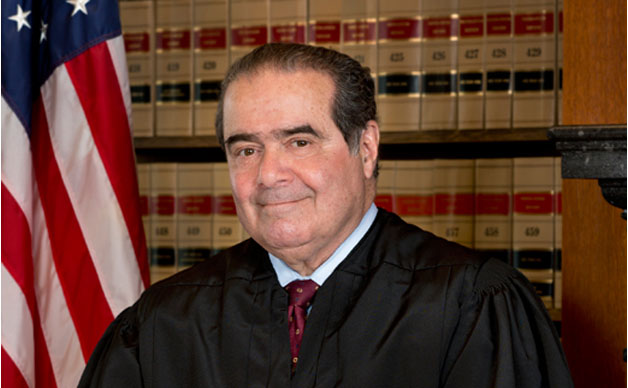
Emory faculty comment on Justice Scalia's legacy
Emory Law faculty comment on the passing of US Supreme Court Justice Antonin Scalia.

WABE quotes Volokh on proliferation of religious freedom bills
Emory Law Associate Professor Alexander "Sasha" Volokh commented on the growing number of bills before the Georgia legislature that touch on religious freedom issues. They include the "Pastor Protection Act" which its sponsor says affirms clergy's First Amendment right to refuse to marry a same-sex couple.

Volokh weighs in on Georgia 'religious liberty' bill
This year's fight over the "religious liberty" bill is shaping up to revolve around the same debate it did last year: the fate of an anti-discrimination amendment tacked onto the measure, the AJC reports. Emory Law Associate Professor Alexander Volokh commented at a public hearing. "Everybody who can dream up a religious exemption will try to push that in the courts," he said. "And almost always, they will lose. And particularly for discrimination cases."

The Volokh Conspiracy: "hub for libertarian ideas," according to The New Republic
In a larger article in The New Republic regarding the "unwinding" of the New Deal, the author refers to The Volokh Conspiracy, "the most prominent academic legal blog in the country and now publishe[d] under the auspices of The Washington Post" as "the hub for libertarian ideas."

Volokh on WDET: How the end of Aramark's contract affects Michigan prisons
Associate Professor Sasha Volokh talked with WDET's Stephen Henderson about private prison services, specifically about the abrupt end of Michigan's contract with the private food service company Aramark, and the differences between public and private prison services.

Volokh files amicus brief as Amtrak case heads back to D.C. Circuit
On July 6, Professor Alexander Volokh filed an amicus brief in DOT v. Ass'n of American Railroads. His primary arguments are: Congress' delegation of authority to Amtrak to develop metrics and standards violates the Due Process Clause; and the appointment of a private arbitrator does not violate any per se rule against delegations of authority to private parties.

Volokh: Is it due process or equal protection on Obergefell v. Hodges?
First, congratulations, everybody on Obergefell v. Hodges! Eight out of nine Justices implicitly or explicitly encourage you to "celebrate today's decision." O.K., come back when you're done, and read this nitpicking of the Court's rationale. The Court had two rationales here: substantive due process and equal protection.

Volokh on Scalia's Shakespearean King v. Burwell dissent
Shakespeare fans will enjoy the language Justice Antonin Scalia employed in his bitter dissent in yesterday's 6-3 decision in the Obamacare case, King v. Burwell, Professor Alexander Volokh writes for the Washington Post blog, The Volokh Conspiracy.
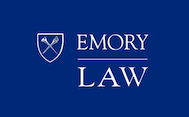
Emory Law authors contribute to social sciences reference collection
Emory University School of Law authors played a significant role in the second edition of the International Encyclopedia of the Social and Behavioral Sciences, which was officially published by Elsevier on April 2.

The Volokh Conspiracy: Beyond Cheryl's birthday
This is about the Cheryl's birthday problem from Singapore that the Internet has been talking about recently. I won't bother solving this one-- it's all over the Internet by now--or answering the obvious questions like why would Cheryl even do such a thing, and why don't Albert and Bernard just pool their information?

Volokh: Supreme Court agrees with the FTC, finds N.C. Board violated antitrust law
In the antitrust case, N.C. Board of Dental Examiners v. FTC, the Board aggressively went after non-dentist teeth whiteners, sending them numerous cease-and-desist letters claiming that they were engaged in the unauthorized practice of dentistry, Associate Professor Alexander Volokh writes in the Washington Post for the Volokh Conspiracy. "Does this violate antitrust law? The Federal Trade Commission said yes." The U.S. Supreme Court agreed 6-3.

Supreme Court case on dentist-only teeth whitening calls for antitrust law, Volokh says
The U.S. Supreme Court is set to hear arguments next month over dentists' ability to keep the business of teeth whitening to themselves. Is it reasonable for a government licensing agency to limit commercial teeth whitening to dentists as a matter of public health, or is it pure self-preservation on the part of dentists who sit on the licensing boards? "If antitrust law is justified anywhere, surely this is one of the most compelling cases," Emory Law Associate Professor Alexander Volokh tells the Daily Report. (Log-in required)

Do faith-based prisons work?
Faith-based prisons continue to be promoted as promising avenues for reform, chiefly on the grounds that they improve prison discipline and reduce recidivism. Unfortunately most of the empirical studies of effectiveness have serious methodological problems and can¿t be taken at face value.

Volokh files amicus cert in DOT v. Association of American Railroads
Volokh files amicus cert in DOT v. Ass'n of American Railroads

Volokh: proposed medical malpractice reform won't violate constitution
A former state attorney general says a bill to replace Georgia's medical malpractice tort system with a workers' compensation-like board is constitutional.

Volokh in USA Today: The 1 percent of cases that clear Supreme Court hurdle
About 2,000 plaintiffs hope to get picked Sept. 30 when the Supreme Court meets privately for its first conference of the 2013 term. Less than 1% of them are likely to be rewarded.

Supreme Court finds antitrust laws apply to governments in Georgia case
Emory Law professor Alexander Volokh comments on the U.S. Supreme Court ruling in FTC v. Phoebe Putney Health System, Inc.